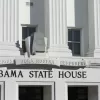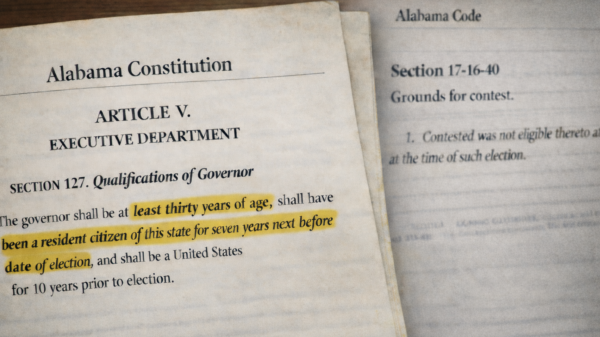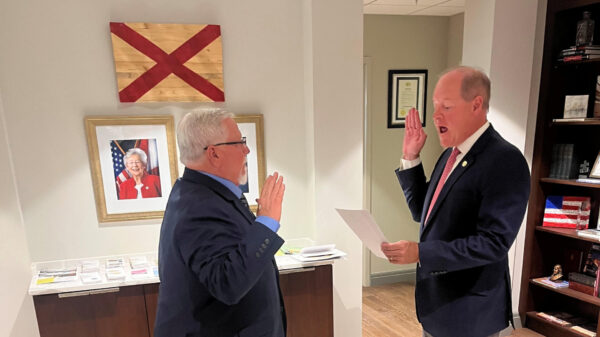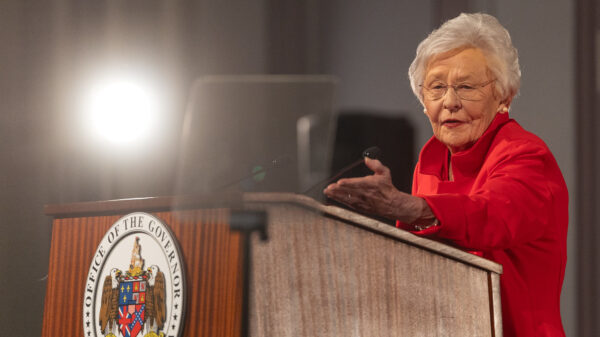Several advocacy organizations filed an amicus brief in the Alabama Supreme Court Thursday, urging the court to hold that an Alabama stop-and-question law does not authorize police to demand physical identification when questioning someone on the street.
“The plain text of Alabama’s stop-and-question law makes clear that it does not permit police officers to compel someone to produce a physical ID, and for good reason,” said Matthew Segal, co-director of the ACLU State Supreme Court Initiative. “The U.S. Court of Appeals for the Eleventh Circuit has previously held that Alabama’s stop-and-question law does not authorize demands for documents, and this case is an important opportunity for the Alabama Supreme Court to confirm that the Eleventh Circuit got it right.”
The case involves Pastor Michael Jennings, a Black man who was confronted by officers in his neighbors’ yard while watering their flowers. Jennings identified himself as “Pastor Jennings,” truthfully said that he lived across the street, and explained that he was watering his neighbors’ flowers while they were away. Nevertheless, police demanded he present physical identification, and arrested Jennings after he refused.
“Alabama’s stop-and-question law does not empower police officers to force people to prove they are who they say they are,” said Matthew Cavedon, incoming director of the Cato Institute’s Project on Criminal Justice. “Nothing in Alabama law makes people carry ID cards, and indeed, fewer than half of Alabamians even have a driver’s license. The Alabama Supreme Court should confirm that people in the Yellowhammer State do not risk arrest simply by not carrying around fully stocked wallets.”
Jennings’ charges of obstructing governmental operations were later dismissed, and Jennings sued the arresting officers and the city in federal district court. As part of that litigation, the U.S. Court of Appeals for the Eleventh Circuit has already held that the police did not have probable cause to arrest Pastor Jennings under Alabama Code section 15-5-30, a law entitled “Authority of Peace Officer to Stop and Question.” But the federal district court has certified a question to the Alabama Supreme Court asking whether, under section 15-5-30, a law enforcement officer may require physical identification when the person “gives an incomplete or unsatisfactory oral response.” In June, the Alabama Supreme Court agreed to hear the case.
“A free people cannot exist at the mercy of arbitrary demands from the state. The right to go about one’s life without unjustified intrusion by police or other government actors is a cornerstone of liberty. To interpret § 15-5-30 as authorizing arrests for refusing to produce physical identification would invert that principle—inviting abuse, eroding public trust, and granting government a power our Constitution was designed to withhold,” said Lauren Faraino, executive director of The Woods Foundation.
The brief filed Thursday argues that section 15-5-30 does not authorize demands for physical identification. The law permits police to request only three facts: name, address, and an explanation of one’s actions. It also only references oral questioning, nowhere referring to documents.
“Although the certified question in this case posits that the police can perhaps demand physical ID after someone gives ‘an incomplete or unsatisfactory oral response,’ the statute neither contains those words nor any instructions for interpreting them. Nor does it say what kind of ID will satisfy that demand. Nor does it say what should happen if the pedestrian claims that they do not own an ID, or that they left it at home,” the brief reads.


















































